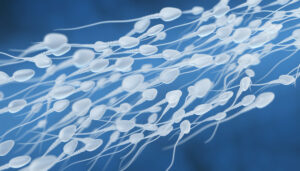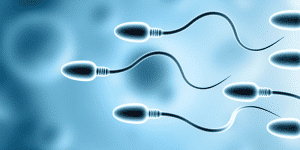Today’s large-scale farming methods make it nearly impossible to avoid consuming traces of agricultural chemicals, many of which can be harmful to the human body over time. Researchers from George Mason University’s College of Public Health and College of Science, led by graduate Sumaiya Safia Irfan and undergraduate Veronica Sanchez, reviewed 21 experimental studies conducted between 2005 and 2025.
Their comprehensive evaluation found consistent evidence that exposure to insecticides can have negative effects on human health, particularly on male reproductive function. “We concluded that exposure to these chemicals can impair sperm quality, disrupt hormone balance, and damage testicular tissue,” said Irfan, first author of the study and a Master of Public Health in Epidemiology graduate of George Mason University.
Widespread use of Neonicotinoids Raises Concerns
The research focused on neonicotinoid pesticides (neonics), the most widely used class of insecticides worldwide. These chemicals are commonly applied to crops, where they are absorbed into the soil, water, and plant tissue. As a result, residues can remain in food consumed by humans. To understand the potential health impacts, Irfan and Sanchez evaluated data from animal studies that examined how neonics affect male reproductive health in rodents.
“Many people may not realize that insecticide residues in food can contribute to infertility. All of the studies included in this review reported that exposure to neonicotinoids impaired sperm quality in male rats and mice,” said Sanchez, a master’s student in chemistry and research assistant at the George Mason Center for Applied Proteomics and Molecular Medicine.
Possible Links to Infertility Warrant Further Investigation
Although animal studies provide important insights, the full effects of neonic exposure on human reproduction remain unclear. The authors agree that the findings warrant further investigation before conclusions can be drawn about risks to human health. “These findings give pause for thought, as the extent of the impact of neonicotinoids on human health is not yet fully understood,” said Sanchez, who will graduate in the fall of 2025. “There needs to be more research on the effects of neonicotinoids on humans so we can begin to discuss risk mitigation strategies.”
Melissa Perry, dean of the College of Public Health and co-author, emphasized the importance of further research. “The use of neonicotinoid insecticides in U.S. agriculture has increased significantly over the past decade, so we know that a large number of people are regularly exposed to them. We need to definitively clarify how this affects the American population,” Perry said.
Reducing Pesticide Exposure at Home
The U.S. Food and Drug Administration (FDA) recommends seven important steps for cleaning fruits and vegetables to remove dirt, preservatives, and other residues from cultivation. However, Irfan noted that while washing fruits and vegetables can help reduce some contaminants, it cannot remove pesticides that have been absorbed by the plant.
“In general, you can reduce pesticide exposure by thoroughly washing fruits and vegetables before eating them and minimizing conditions that attract pests to your home and necessitate the use of pesticides. However, because neonicotinoids are often applied systemically, meaning they are absorbed by the plant and present throughout its tissue, it is very difficult, if not impossible, to remove them completely. The best thing to do is to be aware of what you are buying and shop responsibly,” Irfan said.
The study was published in the Journal of Environmental Research. Contributing authors from George Mason University include faculty members Michael Bloom, Helen Chin, Jenna Krall, and Anna Pollack from the College of Public Health, and Virginia Espina and Lance Liotta from the College of Science. Their combined findings add to the growing evidence that while modern agrochemicals are essential for crop protection, they may also pose invisible risks that warrant closer scientific investigation.






